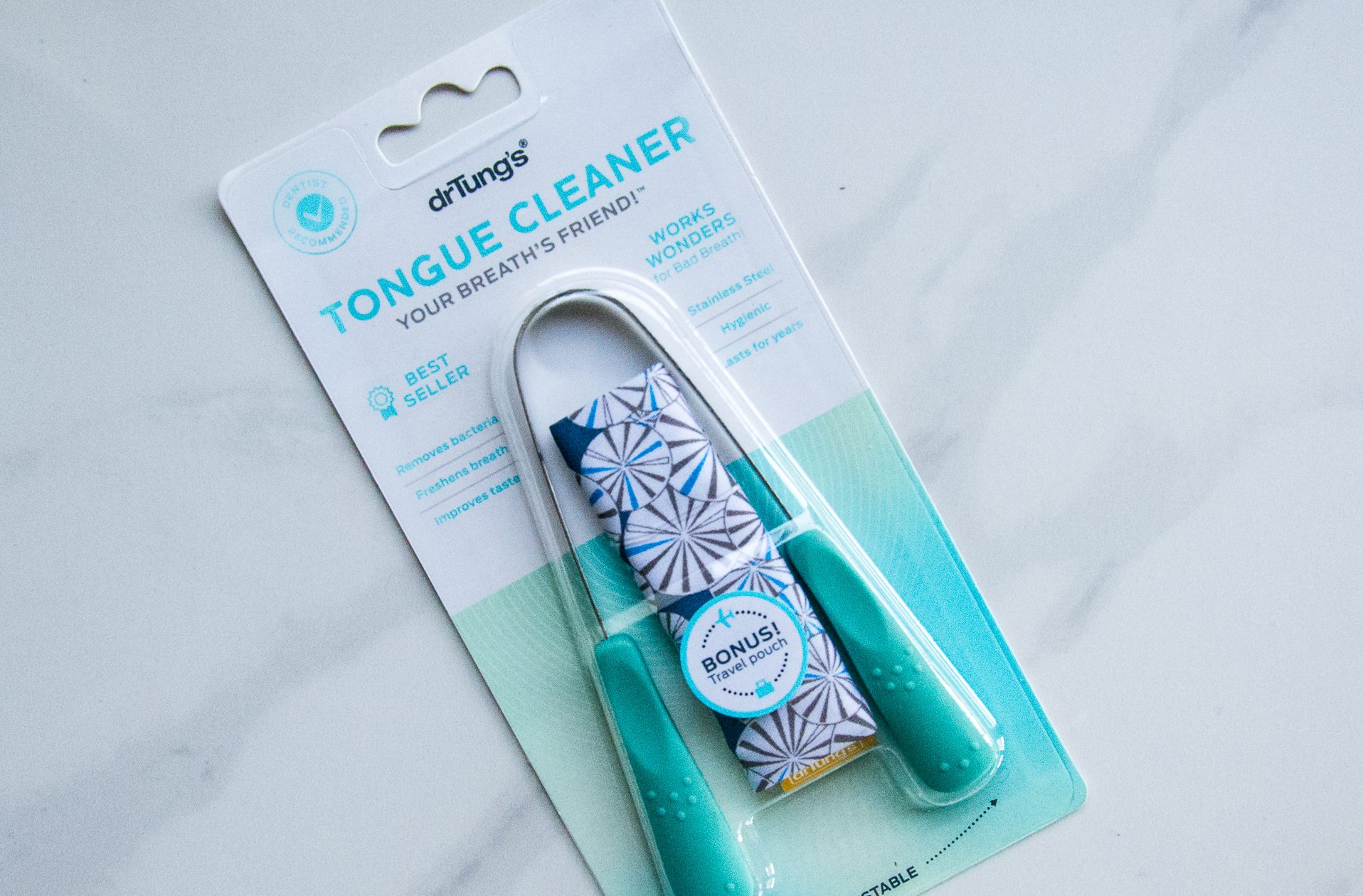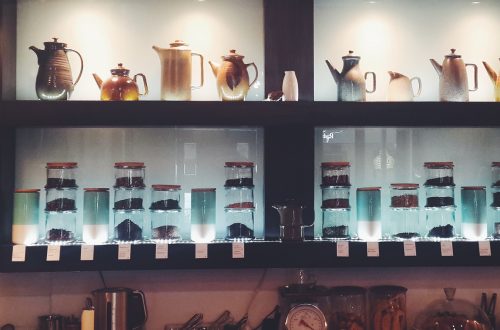
The Benefits of Tongue Scraping
For the past few weeks I have been trialling out the practice of tongue scraping. As we know digestion begins in the mouth, it’s important for us to take care of our oral health as it plays a large role in our overall wellbeing.
Scraping the tongue daily removes any build-up on the tongue, which, if left untreated, can lead to bad breath and may house a significant number of bacteria.
This build up can often look like a coating on your tongue and it generally consists of undigested food and drink particles, which can lead to a build up of bacteria. This film that builds up can often compromise the digestive and immune systems if re-absorbed into the body.
We do require a degree of bacteria in our mouths to maintain a balanced natural flora and help break down our food and the drinks we consume, however sometimes these impurities can be toxic and can lead to conditions such as halitosis or bad breath.
What is Tongue Scraping
So, by scraping the tongue – both morning and night, we’re effectively clearing this build up of bacterial residue, stimulating our taste buds, digestion as well as boosting our immune systems – leaving our mouths feeling fresh and clean. Think of this simple, yet highly beneficial practice, a mini detox for your tongue and mouth.
In Ayurveda, proper digestion is the cornerstone of health; it is literally the process by which our daily intake of food nourishes our tissues and ultimately, our state of consciousness. Healthy digestion also protects the body against the accumulation of toxins and ensures the proper elimination of wastes. Cleansing the tongue enhances the sense of taste, and because digestion begins with taste, this alone supports the entire digestive process.
Additionally, different parts of the tongue are related to the lungs, the heart, the stomach, the liver, the spleen, the kidneys, and the intestines. A coating on the tongue indicates the presence of toxins, which are an impediment to proper digestion. A tongue scraper gently removes these toxins from the tongue itself and simultaneously stimulates, massages, and cleanses the associated organs and deep tissues. Source
Benefits of Using a Tongue Scraper
- Clears toxins & bacteria from the tongue
- Helps remove coating on the tongue that leads to bad breath
- Helps eliminate undigested food particles from the tongue
- Enhances the sense of taste
- Promotes overall oral & digestive health
- Gently stimulates the internal organs
- Increases your awareness of your state of health Source
How to Scrape Your Tongue
- In the morning, make tongue scraping the first thing you do. By getting rid of the residue that’ll have built up overnight, you’ll limit the chances of re-absorbing any impurities.
- Stick your tongue out and relax. Start at one side, right at the back (as far back as you can go without gagging) and scrape forward towards the tip of your tongue (gently yet firm). Continue this back to front scraping motion from left to right, until the whole tongue has been scraped (approx. 5-7 times)
- Remember to rinse the scraper in hot water in between scrapes to remove the residue that you’d have scraped off.
- Follow tongue scraping by rinsing your mouth with water and brushing your teeth with a fluoride free toothpaste and flossing.
- Repeat at night before bed time/after dinner. Make this a daily practice
Many systems of medicine, including Ayurveda, use tongue diagnosis as a window into the internal workings of the body. Because the tongue reflects the health of so many vital organs, systemic imbalances (and improvements) are reflected on the surface of the tongue. Using a tongue scraper daily allows you to take note of any significant changes that may indicate variations in your own internal state of balance.
What Tongue Scraper Should You Use
There are many different types and styles of tongue scrapers on the market, but I opted for this stainless steel Dr Tungs Tongue Cleaner, which I found at my local organic health store. You can find it here if you’re in New Zealand or here on iHerb. Stainless steel means that it’ll resist corrosion more other metals, but gold, silver, copper, tin and brass are also other options.
This one that I found has handy grips on the end, and came in a perfect material pouch – which is great for storage as well as travel.
Hope you enjoyed this post and remember to leave a comment down below to let me know what dental hygiene practices you do on a daily basis.












3 Comments
Cathy Klein
I didn’t know it has so much benefits. Thanks a lot for sharing this.
Taryn
Hi Cathy
Thanks so much for your comment, yes it’s amazing how much this simple tool can do in terms of oral health
Taryn
James Franklin
Taking care of your teeth and gums is critical to your overall health. Scraping your tongue can help prevent cavities and eliminate harmful bacteria that inflames your gums.